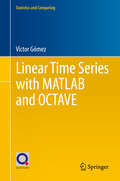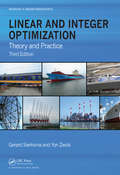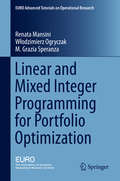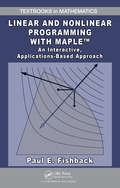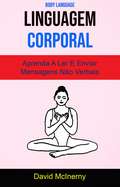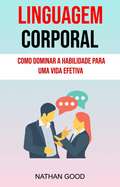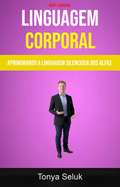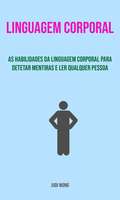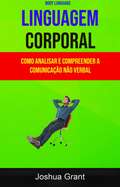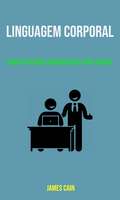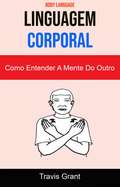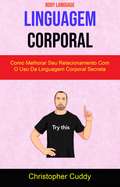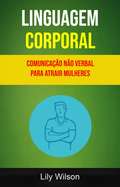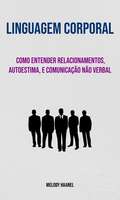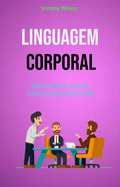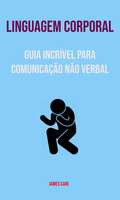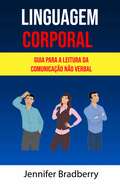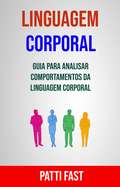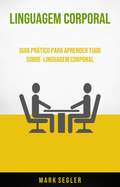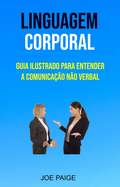- Table View
- List View
Linear Time Series with MATLAB and OCTAVE (Statistics and Computing)
by Víctor GómezThis book presents an introduction to linear univariate and multivariate time series analysis, providing brief theoretical insights into each topic, and from the beginning illustrating the theory with software examples. As such, it quickly introduces readers to the peculiarities of each subject from both theoretical and the practical points of view. It also includes numerous examples and real-world applications that demonstrate how to handle different types of time series data. The associated software package, SSMMATLAB, is written in MATLAB and also runs on the free OCTAVE platform. The book focuses on linear time series models using a state space approach, with the Kalman filter and smoother as the main tools for model estimation, prediction and signal extraction. A chapter on state space models describes these tools and provides examples of their use with general state space models. Other topics discussed in the book include ARIMA; and transfer function and structural models; as well as signal extraction using the canonical decomposition in the univariate case, and VAR, VARMA, cointegrated VARMA, VARX, VARMAX, and multivariate structural models in the multivariate case. It also addresses spectral analysis, the use of fixed filters in a model-based approach, and automatic model identification procedures for ARIMA and transfer function models in the presence of outliers, interventions, complex seasonal patterns and other effects like Easter, trading day, etc. This book is intended for both students and researchers in various fields dealing with time series. The software provides numerous automatic procedures to handle common practical situations, but at the same time, readers with programming skills can write their own programs to deal with specific problems. Although the theoretical introduction to each topic is kept to a minimum, readers can consult the companion book ‘Multivariate Time Series With Linear State Space Structure’, by the same author, if they require more details.
Linear and Integer Optimization: Theory and Practice, Third Edition (Advances in Applied Mathematics)
by Gerard Sierksma Yori ZwolsPresenting a strong and clear relationship between theory and practice, Linear and Integer Optimization: Theory and Practice is divided into two main parts. The first covers the theory of linear and integer optimization, including both basic and advanced topics. Dantzig's simplex algorithm, duality, sensitivity analysis, integer optimization models
Linear and Mixed Integer Programming for Portfolio Optimization
by Renata Mansini Włodzimierz Ogryczak M. Grazia SperanzaThis book presents solutions to the general problem of single period portfolio optimization. It introduces different linear models, arising from different performance measures, and the mixed integer linear models resulting from the introduction of real features. Other linear models, such as models for portfolio rebalancing and index tracking, are also covered. The book discusses computational issues and provides a theoretical framework, including the concepts of risk-averse preferences, stochastic dominance and coherent risk measures. The material is presented in a style that requires no background in finance or in portfolio optimization; some experience in linear and mixed integer models, however, is required. The book is thoroughly didactic, supplementing the concepts with comments and illustrative examples.
Linear and Nonlinear Programming with Maple: An Interactive, Applications-Based Approach
by Paul E. FishbackHelps Students Understand Mathematical Programming Principles and Solve Real-World ApplicationsSupplies enough mathematical rigor yet accessible enough for undergraduatesIntegrating a hands-on learning approach, a strong linear algebra focus, Maple software, and real-world applications, Linear and Nonlinear Programming with Maple : An Interactive,
Lineare Optimierung unter Unsicherheit: Eine Einführung
by Frank HerrmannGegenstand dieses Buches sind die in der Literatur und auch in der aktuellen Forschung verwendeten Ansätze der linearen Optimierung unter Unsicherheit. Im Mittelpunkt stehen Kompensationsprobleme und ihre Alternativen wie „Chance Constrained“-Probleme oder Sensitivitätsanalysen bzw. ihre Erweiterung, die parametrische Optimierung. Diese Ansätze werden mathematisch präzise beschrieben und ihre charakteristischen Eigenschaften werden anhand von leicht nachrechenbaren Fallstudien erläutert. Da durch Kompensationsprobleme häufig die besten Resultate erzielt werden, werden mit diesen Abstraktionen von konkreten Problemen in Unternehmen gelöst.Das Buch wendet sich an Doktoranden und Studierende mit ausgeprägtem Interesse an der optimalen Lösung von Problemen, insbesondere aus dem Bereich der Produktionsplanung, sowie generell an Wissenschaftler und Experten in Unternehmen, die eine Einführung in die lineare Optimierung unter Unsicherheit suchen.
Linguagem Corporal - Aprenda A Ler E Enviar Mensagens Não Verbais
by David McInernyEste livro tem estratégias de comunicação eficazes que ajudarão você a melhorar sua inteligência social, falar em público, confiança e habilidades de persuasão que o ajudarão a ter sucesso nos negócios e na vida pessoal. Compreender a base da comunicação não verbal passa a ser uma questão muito importante para um estudante deste campo. No entanto, ter as orientações perfeitas para o mesmo é um trabalho muito complicado hoje em dia, pois existem centenas de livros sobre o assunto, todos oferecendo diferentes apresentações do mesmo assunto. Esta descrição multifacetada da mesma ideia passa a ser a fonte de orientação aqui para escrever este livro .. Pegue sua cópia hoje clicando no botão no topo desta página!
Linguagem Corporal : Como Analisar Pessoas Em Menos De Um Dia
by Patrick RyderQUER APRENDER MAIS SOBRE O COMPORTAMENTO HUMANO? Dia após dia, muitas pessoas sofrem desses problemas. Em muitas situações sociais, não conseguimos descobrir o que as pessoas realmente querem nos dizer ou como podemos nos relacionar profundamente com elas. O problema é que muitas delas tendem somente a ouvir o que o querem, mas não analisar o contexto por completo. Aprender a ler pessoas lhe dá uma vantagem definitiva quanto a prever comportamento, moldar suas ações para edificar um relacionamento favorável com as pessoas, construir mais relacionamentos pessoais satisfatórios, priorizando o desenvolvimento de relações profissionais. Compre este livro hoje mesmo.
Linguagem Corporal : Como Dominar A Habilidade Para Uma Vida Efetiva ( Body Language)
by Nathan GoodO autor aqui mostra a guia dos passos, um por um e que a diferença pode ser travada para os diferentes tipos de linguagem corporal e o modo não verbal de comunicação. Em palavras simples, espera-se que este livro ganhe a escolha dos leitores. Ao aprender como a linguagem corporal funciona, você também descobrirá como adaptar melhor sua própria linguagem corporal. Este livro mostrará a você como mudar sua linguagem corporal para parecer mais confiante, poderoso, experiente e atraente. O que você está esperando? Não espere mais!
Linguagem Corporal: Aprimorando A Linguagem Silenciosa Dos Alfas ( Body Language)
by Tonya SelukVocê está prestes a descobrir como: Aprender e dominar a linguagem corporal e a comunicação subconsciente Aqui está uma prévia do que será ensinado: Comunicando sem palavras Formas de linguagem corporal básica Movimentos Importantes Uso dos Olhos Sua postura Sinais incompatíveis E muito, muito Mais! É com muita empolgação que transmito essas informações, e muito feliz que possam ler e, daqui para frente, implementar as estratégias aprendidas. Espero que este livro tenha sido capaz de ajudá-lo a entender os princípios do uso da linguagem corporal e como usá-los em várias situações sociais. O próximo passo é começar a praticar o que aprendeu e, com sorte, viver uma vida feliz e bem-sucedida! Por favor, não seja alguém que se contenta em somente ler; aplicar as estratégias descritas neste livro só irão beneficiá-lo!
Linguagem Corporal: As Habilidades da Linguagem Corporal para Detetar Mentiras e Ler Qualquer Pessoa
by Judi WongAs pessoas, os amigos, membros da sua família, colegas de trabalho, vendedores, mentem-nos a toda a hora. Diária e constantemente. Nenhum de nós está imune, e todos somos vítimas. De acordo com vários estudos, levados a cabo, por diferentes pesquisadores, todos nós somos vítimas de em média 200 mentiras por dia. Você está prestes a descobrir que o objetivo da linguagem corporal é ler a mensagem que o corpo quer transmitir, independentemente das palavras. Em alguns casos, o corpo mostra a mesma atitude ou sentimentos que estão a ser passados através da linguagem verbal, das palavras, noutros casos, o corpo envia-nos uma mensagem diferente. Uma boa razão para continuar a ler este livro, é entender que a linguagem corporal representa uma alta proporção do significado da mensagem, quando alguém verbaliza algo.
Linguagem Corporal: As Melhores Dicas Para Melhorar Sua Linguagem Corporal ( Body Language )
by Carol ClarkNeste guia, você aprenderá a promover melhores relacionamentos, comunicar-se efetivamente, estabelecer metas para o futuro, adotar uma perspectiva mais contente, feliz e positiva e, o mais importante, controlar as emoções negativas e orientar sua própria mente, sem influências externas. Este livro explicará a você como funciona a linguagem corporal e como entender melhor o que as outras pessoas estão dizendo com seus movimentos e expressões corporais.
Linguagem Corporal: Como Analisar E Compreender A Comunicação Não Verbal ( Body Language)
by Joshua GrantVocê gostaria de dominar a comunicação não-verbal e a linguagem corporal dos outros? Ao contrário da crença comum, aprender a ler a linguagem corporal não é difícil. A Linguagem Corporal 101 pega você pela mão e mostra como qualquer um pode ler os sinais indicadores da linguagem corporal e, com isso, saber o que a outra pessoa está REALMENTE pensando ao contrário do que ela pode estar dizendo. As habilidades que você aprenderá neste livro melhorarão enormemente suas interações sociais e relacionamentos, sejam negócios ou prazeres. Este livro ajudará você a entender e colocar em prática diferentes tipos de comunicação não verbal. Usando os princípios e as instruções deste livro, você aprenderá os melhores tipos de linguagem corporal para usar em diferentes tipos de situações sociais. Baixe este grande livro hoje!
Linguagem Corporal: Como Aprender Comunicação Não Verbal
by James CainPessoas mentem, mas existe uma coisa que nunca mente: seus corpos. Linguagem corporal: Como aprender comunicação não verbal Alguns pesquisadores provaram que a linguagem corporal transmite a maior parte das informações na interação interpessoal. Ela regula interações e mantém relacionamentos. Porém, linguagem corporal também é ambígua. Assim sendo, é importante a leitura correta da linguagem corporal para evitar erros na compreensão. Entender como ler e dar sugestões não verbais é uma parte importante da comunicação. Nós o fazemos automaticamente sem saber e o entendimento é a palavra chave. Mesmo assim, se você quer dominar linguagem corporal para manipulação dos outros, será mais provável que você falhe e perca confiança no final. Não espere para descobrir a SUA CHAVE para uma vida nova e melhor.
Linguagem Corporal: Como Entender A Mente Do Outro ( Body Language )
by Travis GrantSe você quer aprender sobre Analisar Pessoas ou se já tem alguma noção e deseja adquirir conhecimentos extras para fazer tudo o que for possível para conseguir ler pessoas, este livro é para você. Você irá se surpreender com o quanto pode aprender e com a consciência que irá atingir com todos os benefícios. Impressione seus amigos e familiares com o quanto de psicologia humana você consegue ler neles!
Linguagem Corporal: Como Melhorar Seu Relacionamento Com O Uso Da Linguagem Corporal Secreta ( Body Language )
by Christopher CuddyVocê gostaria de descobrir o que está acontecendo dentro da cabeça de outra pessoa? O autor cobre tudo, desde gestos e posturas até espaço pessoal e físico. Desde os tempos antigos, usamos nossa linguagem corporal para nos comunicar, transmitindo nossas emoções e pensamentos para aqueles que nos rodeiam. Cada pessoa tem uma linguagem corporal diferente, englobando não apenas expressões faciais, mas também posturas e gestos corporais. Mesmo o movimento dos olhos é considerado como parte da comunicação não verbal, sendo seguido de perto pelo toque e pelo uso do espaço pessoal. Se você está pronto para agir e mudar sua vida para melhor, este livro definitivamente o guiará na direção certa!
Linguagem Corporal: Como Reconhecer Sinais Vitais Em Qualquer Situação
by Charles DelfinoLinguagem Corporal: Como reconhecer sinais vitais em qualquer situação por Charles Delfino Domine a arte da linguagem corporal! Você não percebe a existência da sombra do corpo humano na maior parte do tempo. Você também não sabe o que acontece quando você vai dormir. Não importa onde você esteja ou o que está fazendo, sua sombra irá e fará o mesmo. A linguagem corporal é uma ferramenta poderosa que pode ser usada em todos os aspectos da sua vida. Este livro lhe dará uma visão aprofundada sobre como ler a linguagem corporal para decifrar as informações ocultas de qualquer diálogo ou interação. Além de te ensinar como e quando usá-la. Dominando as habilidades deste livro você poderá melhorar seu relacionamento com seu cônjuge, parceiro e membros da família, assim como melhorar sua carreira ajudando-o a aceitar essa entrevista ou ajudá-lo a construir um relacionamento sólido com seus colegas de trabalho ou chefe. Se você está pronto para tomar uma atitude e mudar sua vida para melhor, este livro definitivamente irá guiá-lo na direção certa! Gênero: NEGÓCIOS E ECONOMIA / Gestão Gênero Secundário: AUTOAJUDA / Geral Contagem de palavra: 15096 Informações de vendas: Recentemente fizemos uma promoção e conseguimos fazer 1.500 vendas durante o período da promoção. Embora todas as vendas fossem de downloads gratuitos, significa que o tema tem potencial e é capaz de gerar receita. Os downloads pagos variam entre 40 e 60 por mês. Cálculo Estimativa mínima - 30 downloads pagos *US$ 3,00 * 70% =US$ 63 por mês Máximo, mas não limitado a - 60 downloads pagos *US$ 3,00 * 70% =US$ 126 por mês Lucro anual por livro - Estimativa mínima - US$ 63 * 12 = US$ 756 por ano. Lucro anual por livro - Máximo, mas não limitado a Estimativa - US$ 126 * 12 = US$ 1512 por ano. Por favor, observe que este é
Linguagem Corporal: Comunicação Não Verbal Para Atrair Mulheres
by Lily WilsonEntender a linguagem corporal melhora a sua comunicação, o que vai diminuir os seus conflitos internos, a linguagem corporal é uma grande jogada nos tempos atuais, e também se mostra muito importante para alavancar sua carreira. Depois de ler esse pequeno livro você irá conseguir conquistar a garota que você ama, apenas se colocando em uma posição dominante ou andando como um homem de verdade. O que você está esperando? Não espere mais nada. Compre esse livro e entre na jornada dos seus sonhos.
Linguagem Corporal: Descubra Como Atrair As Pessoas Usando O Poder Da Linguagem Corporal
by Rebecca ThompsonVocê está prestes a descobrir os diferentes aspectos da linguagem corporal e técnicas que vão lhe permitir ler os gestos, ações e emoções dos outros. Você também pode tentar usar esses gestos e expressões você mesmo para interagir com amigos e familia. Enquanto você desenvolve essa habilidade usando os segredos, truques e estratégias que você vai encontrar nesse livro, você será capaz de acelerar o seu sucesso nos negócios e relacionamentos de todos os tipos.Você já sentiu como se o que alguém está lhe dizendo não fosse o que a pessoa realmente sente? O que Você está esperando? Não espere mais! Role para cima e clique no botão comprar agora para começar a jornada para a vida dos seus sonhos!
Linguagem Corporal: Dominando A Arte Da Comunicação Não-verbal
by Victoria WilsonA linguagem corporal nem sempre é tão óbvia ou expressiva quanto a capa deste livro. A maior parte da nossa linguagem corporal é sutil e expressada em micro expressões. Ao entender as pistas não-verbais que outras pessoas nos enviam, nós entenderemos melhor as mensagens e a situação, permitindo-nos reagir e abordá-las da maneira mais apropriada. Se mais pessoas puderem perceber e entender melhor como os outros se sentem em relação a elas, e o significado real daquilo que estão tentando transmitir, elas poderão ajustar seu comportamento e suas reações. Deste modo, aumentarão suas chances de fazer mais conexões sociais com os outros ao seu redor. Faça o Download deste Grande Livro Hoje!
Linguagem Corporal: Domine a Arte De Ler Qualquer Um Através Da Comunicação
by James CainPense em como seria ÓTIMO impressionar as pessoas com seus movimentos, seu posicionamento, seu andar… sem ao menos dizer uma única palavra! Você pode aprender a ler as várias maneiras de linguagem corporal nas mãos, pernas, olhos e rostos das pessoas. Esta habilidade é especialmente útil se você estiver interessado em conseguir um encontro. Linguagem corporal: domine a arte de ler qualquer um através da comunicação guia você pelo processo de chamar alguém para sair, se encontrar com a pessoa, e ler seus sinais corretamente no quarto. O que você está esperando? Chega de esperar! Role para cima e clique em “comprar” agora para começar a jornada para a vida dos seus sonhos!
Linguagem Corporal: Guia Para A Leitura Da Comunicação Não Verbal ( Body Language)
by Jennifer BradberryAcredite ou não, a maior parte de nossa comunicação é na verdade não verbal. Ou seja, a maior parte do que estamos dizendo expressa-se através de nossos movimentos, postura, expressões e ações. Essa forma coletiva de comunicação é conhecida como linguagem corporal. Compreender os princípios básicos da comunicação não verbal passa a ser uma questão muito importante para os estudantes deste campo. Entretanto, filtrar quais as orientações mais apropriadas para alcançar esse objetivo pode parecer ser trabalho algo complicado hoje em dia, pois existem centenas de livros sobre o assunto, todos oferecendo apresentações diferentes do mesmo assunto. Esta descrição multifacetada da mesma ideia passa a servir como guia para a redação deste livro. Não espere mais tempo para descobrir a sua chave para uma vida nova e melhor.
Linguagem Corporal: Guia Para Analisar Comportamentos Da Linguagem Corporal
by Patti FastVocê já se perguntou por quê algumas pessoas você desgosta imediatamente e outros que você tende a procurar sempre? Obviamente, existe algo mais acontecendo além da comunicação verbal que te atrai ou te repele, correto? Você pode descobrir o que isso é lendo o nosso livro. Dentro das páginas do livro, você aprenderá sobre os quatro principais tipos de personalidade e até determinar em qual delas você se encaixa. Linguagem Corporal revela as reais intenções das pessoas. Ainda assim, a maioria de nnós desconhece como identificar e ler esses gestos sutis. A maioria não entende que o corpo envia sinais que falam bem mais alto que as palavras. Baixe Sua Cópia hoje!
Linguagem Corporal: Guia Prático Para Aprender Tudo Sobre Linguagem Corporal
by Mark SeglerVocê raramente da uma pausa para considerar como usar os gestos de suas mãos, seus olhos, postura do corpo, toque e espaço mas essas são maneiras poderosas de se comunicar através da linguagem corporal o tempo todo. Quando nós tratamos de comunicação eficaz, nada funciona melhor em favor de um ser humano do que a combinação da linguagem verbal com a não verbal, isso te leva aonde você quer chegar. Qual é a diferença entre essas duas formas de comunicação? Aprender a como entregar a melhor primeira impressão possível e ter uma grande influência nos outros. Descubra o que significam os movimentos mais comuns no corpo e aprenda também a interpretar sentimentos, pensamentos e claras intenções. Compre sua cópia ainda hoje!
Linguagem Corporal: Guia Simples De Domínio, Elevação De Status E Comunicação Não Verbal ( Body Language)
by Brian LevineEste livro tem a capacidade de mudar totalmente sua vida. Você aprenderá quais sinais de linguagem corporal deve procurar quando quiser saber se a pessoa com quem está falando está dizendo a verdade ou está tentando te enganar. Ele sempre lhe dará essa vantagem para que você possa ajustar o seu plano de jogo, direcionando as coisas na direção que VOCÊ precisa. Este livro ajudará você a entender e usar diferentes tipos de comunicação não-verbal. Usando os princípios e as instruções deste livro, você aprenderá os melhores tipos de linguagem corporal para usar em diferentes situações sociais. O que você está esperando? Não espere mais! Role para cima e clique no botão "Comprar agora" para começar a jornada para a vida dos seus sonhos!
Linguagem Corporal: Guia ilustrado para Entender Comunicação Não Verbal
by Joe PaigeQuando conversamos nós falamos muito pouco porque é o nosso corpo que realmente conversa! Nós nos expressamos muito inconscientemente através do nosso comportamento físico, postura, gestos, movimento dos olhos, expressões faciais, toque e o espaço que usamos. Então por que não aprender como usar isso a nosso favor? Linguagem corporal é uma poderosa ferramenta que pode ser usada em todos os aspectos da sua vida. Este livro lhe trará um conhecimento profundo sobre como interpretar a linguagem corporal e decifrar as verdadeiras intenções de qualquer dialogo ou interação. Dominar as habilidades que estão nesse livro irá melhor seus relacionamentos com sua esposa, parceiro ou membros da família, e pode até mesmo avançar sua carreira ajudando-o a se sair bem naquela entrevista ou a construir bons relacionamentos com seus colegas de trabalho ou chefe. Praticando esses princípios você será capaz de aprimorar muitos aspectos da sua vida como relacionamentos, carreira e sua vida social de modo geral. Obtenha sua cópia hoje clicando no botão no alto desta página
